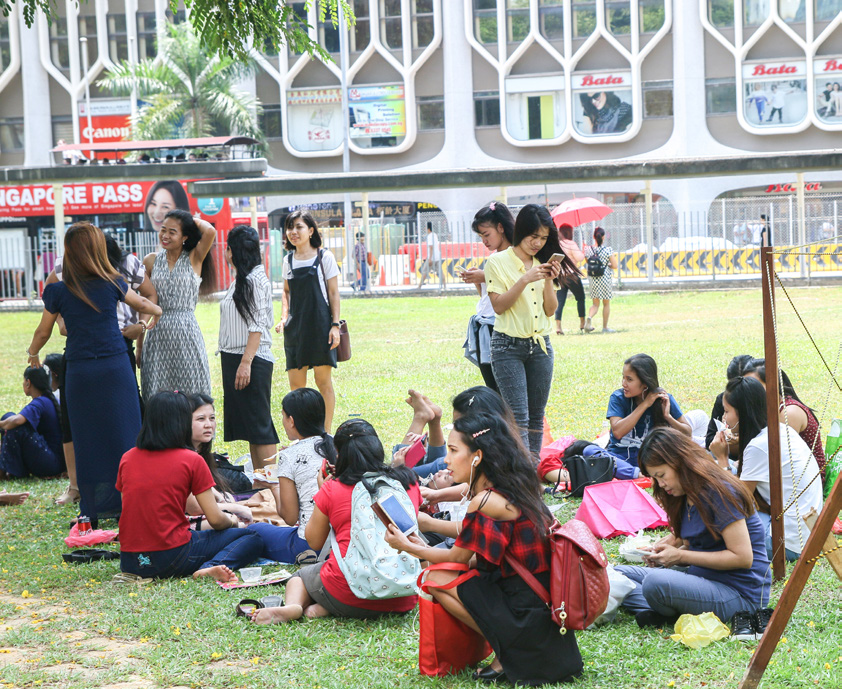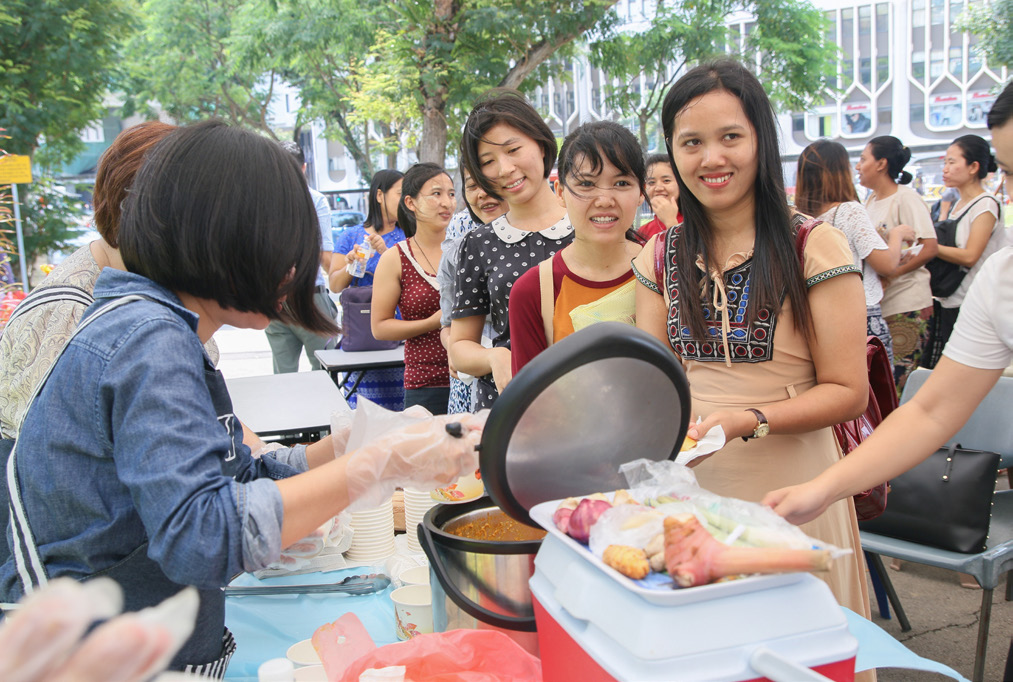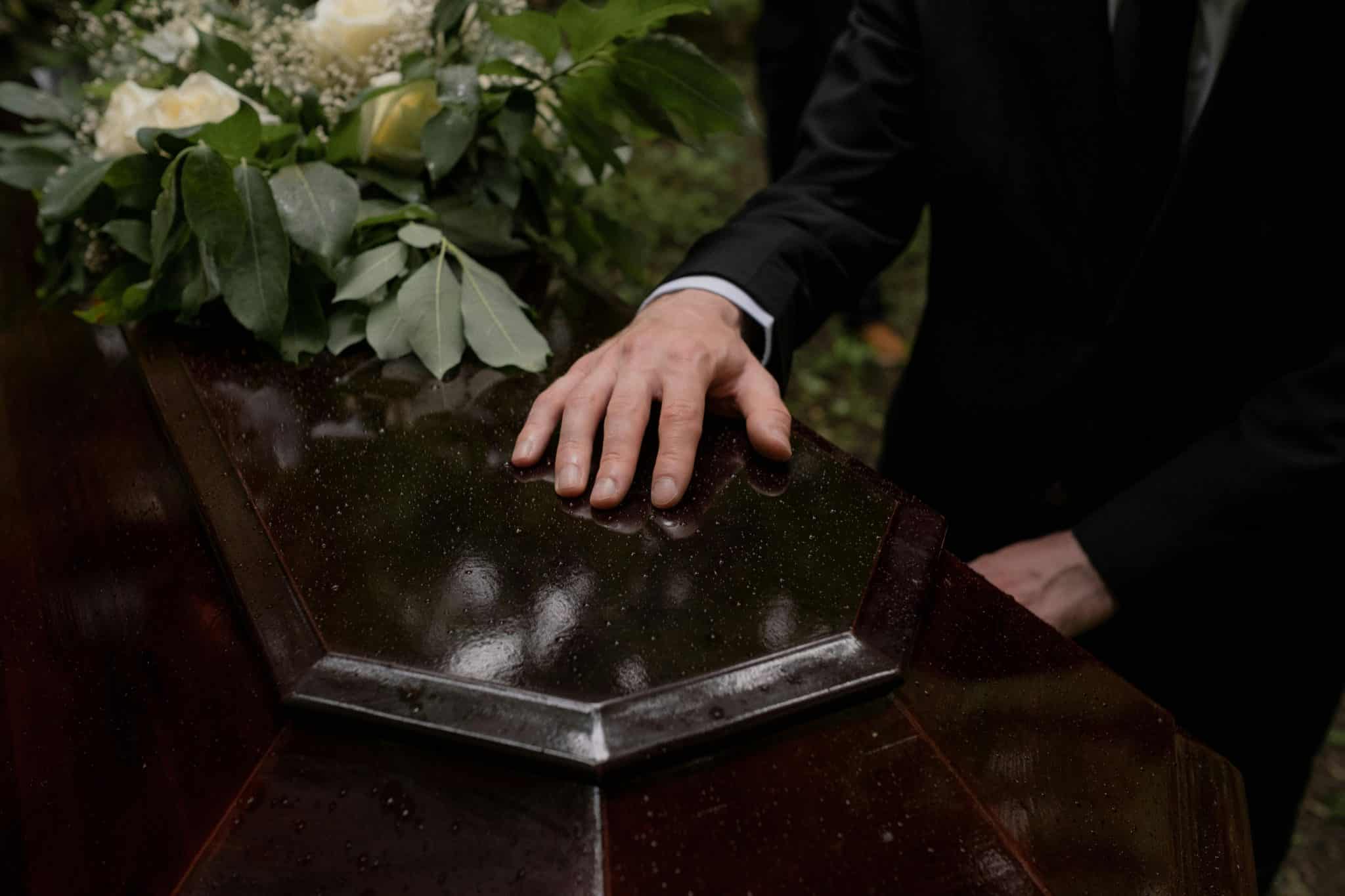
Singapore is a nation made up largely of foreigners without a single discernible racial or local culture that can claim an affinity to the land. In such a context, the two-fold Gospel message of reconciliation has an even more meaningful relevance: Peace with God. Peace with Man. Photo by Eugene Lim on Unsplash.
“But now in Christ Jesus you who once were far off have been brought near by the blood of Christ. For he himself is our peace, who has made us both one and has broken down in his flesh the dividing wall of hostility.
“And he came and preached peace to you who were far off and peace to those who were near.
“So then you are no longer strangers and aliens, but you are fellow citizens with the saints and members of the household of God…” (Ephesians 2:13-19)
Alienation is a popular word in our society today.
It describes a social condition where someone, for various reasons, feels cut off from the social unit which he or she is a part of.
For example, some of our own citizens may feel alienated because of social inequality while those who are older may also feel alienated because of the rapid changes in the way society communicates.
They are being left out of WhatsApp, Telegram and other popular social media chat groups.
A citizen should not feel like a foreigner; a family member should not feel like a guest in his own house. Yet, this sense of alienation is common and real in modern societies.
Strangers and aliens
In recent history, it was Karl Marx who popularised this word: Every worker puts into his craftsmanship, a part of himself. When his employer then sells his product, the worker is in part alienated from himself.
This, according to Marx, was the basis of the class struggle. As we look back, we can see the huge impact which basic ideas like these can make.
But long before the word “alienation” was used this way, the Bible has used it to describe man’s alienation from God, and man from his fellow man.
St Paul described the spiritual condition of the Gentiles very vividly in Ephesians. He talked about this double-alienation, and how the solution to the dividing wall is the Cross.
Firstly, Jesus has made possible our reconciliation with God. As a commentator summarised, the Gentiles were “Christ-less, stateless, friendless, hopeless and Godless.” But in Christ, we have been reconciled with God. We have found “peace with God”.
And at the same time, He has created in Himself one new man instead of two. He did that by abolishing the requirements of the law. It used to be that one can only come near by embracing a certain race, culture, and language. Now, through Christ, anyone can come near.
Peace with God. Peace with men. In a nutshell, the message of the Gospel.
From on high
Peace with God was the title of the famous book which Billy Graham wrote; I remember reading it as a teenager. He must have based the title of his book on this Ephesians passage.
If you were amongst the 30,000 who gathered at PraySingapore in the Sports Hub in October last year, you would agree that the screening of the short clip of Billy Graham’s rally in 1978 was a notable moment. We were transfixed by his message. We were moved by how the crowds responded to the salvation altar call, while his signature hymn, Just As I Am, rang out.

A publicity poster on the milestone Singapore Billy Graham Crusade in 1978.
I felt transported back in time as I reflected on how the Gospel was shared in those days. Sin caused the divide between man and God. God so loved the world that He sent His only Son, Jesus Christ to die on the cross for our sins. He became our way or bridge back to God. To be a Christian, one only has to turn from his sins (repent) and “receive Christ.” One does that through praying the “sinner’s prayer”.
That the Cross can make Jew and Gentile “one man” has always been one of the glorious messages of the Gospel.
Undoubtedly, Billy Graham was one major reason why so many churches worked together and gathered at the National Stadium. Beyond the magnetic personality of this American evangelist, however, was our shared conviction in the Gospel’s message. Christians invited many friends because of this conviction.
I know of one lady who walked down the stadium steps. She was 35 years old then. She had been baptised as an infant, but in her own words, was a “complete non-Christian” up till that point. She gave her life to Jesus. She moved on to become a very influential lay leader and prolific personal evangelist in one of our parishes. On that night, this lady also brought along her two daughters. The oldest daughter, who was 11 years old, also gave her life to Christ.
This step changed and shaped the rest of her life. Her daughter became very active in her faith as a secondary student, junior college student and later in her student life at varsity. She became a general practitioner and was active in witnessing to the Gospel. Eventually, she became married to a clergy. (I know this for a fact because this clergy was me.)
Those who were far off have been brought near by the blood of Christ (Ephesians 2:13).
Just as I am, without one plea,
But that Thy blood was shed for me,
And that Thou bid’st me come to Thee,
O Lamb of God, I come! I come!
We may not be singing this hymn in the Celebration of Hope (COH) rallies. But the Gospel truth is the same. We may have many reasons to participate in COH. But this conviction needs to be at the heart of it all.
Peace with man
This may be lost to us today but the idea that a Jew and Gentile can be the same was unthinkable to a traditional Jew, no less to St Paul himself. That the Cross can make us “one man” has always been one of the glorious messages and impact of the Gospel.

One of the greatest phenomena of our time is the presence of foreign workers. Even if some of our legal rights are different, we can share similar spiritual, social and moral rights.
One of the greatest phenomena of our time is the presence of foreign workers. More people than ever, it seems, are displaced from their own homes and families in search of a better life.
What foreigners want above all is to be accepted. Some bring their families along and stay more permanently. The ultimate sign of that acceptance is to receive citizenship in the country they have adopted as their own. Their new passport is often their proudest possession. At last, they can hold their heads up and build a new sense of identity.
Now they can say the pledge, proudly with their hand to their chest. They have arrived. They belong. That was my experience 10 years ago.
But long before I received my pink IC, it was the Church which was home and family to me.
For resident foreigners in Singapore today – whether they are temporary residents, permanent residents or new citizens – the church can offer this “one man” experience: To be loved and accepted as fellow human beings. Even if some of our legal rights are different, we can share similar spiritual, social and moral rights.
There are hundreds of foreigners, mostly Myanmar workers, who gather on Cathedral grounds every Sunday. I recall my first few weeks here as the new Vicar. I went to the Franciscan Centre to make a new cassock for myself. When Sister Theresa found out that I was the new Vicar of the Cathedral, she sat me down.
She wanted to tell me something very important. “Vicar, it is about the hundreds of foreigners on your grounds.” And she proceeded to tell me what some churches are doing for foreign workers every Sunday: Language classes, sewing classes, cooking classes, concerts and so on. I must admit that I felt my blood pressure rising: How would we find the energy to do all these in the Cathedral?

Volunteers at St Andrew’s Cathedral run a Befriending Myanmar Workers (BMW) ministry.
Today, I can testify that, three years later, some of these classes are happening regularly on our grounds. We are thankful to the dedicated staff and member volunteers in our Befriending Myanmar Workers (BMW) ministry – from the English and Mandarin congregation and our brothers and sisters from the Myanmar Worship Service (MWS).
We have moved from seeing them as a problem to manage to people whom we can minister to. When the opportunity arises, the Gospel is shared. Some have started to attend the MWS.
Relevance that is unique
2019 is very different from 1978 in this aspect as the variety and number of foreigners have increased manifold.
As Singapore celebrates her 200th year of existence as a modern nation, we are reminded that she is unique amongst the major cities in Asia. Beijing, Calcutta, and Tokyo have centuries of civilisations behind them. When you visit these cities, you experience a city culture deeply rooted in her civilisation and racial identity.
Singapore is a nation made up largely of foreigners without a single discernible racial or local culture that can claim an affinity to the land.
Many peoples and cultures have been cobbled together to create a new city. In such a context, the two-fold Gospel message of reconciliation has an even more meaningful relevance.
Peace with God. Peace with Man.
In a Year of Hope, let us be a loving witness of this Gospel message.
This article was first published in the weekly service bulletin for St Andrews Cathedral under the “Vicar Writes” column. More articles can be found on the St Andrews Cathedral website here.
We are an independent, non-profit organisation that relies on the generosity of our readers, such as yourself, to continue serving the kingdom. Every dollar donated goes directly back into our editorial coverage.
Would you consider partnering with us in our kingdom work by supporting us financially, either as a one-off donation, or a recurring pledge?
Support Salt&Light



